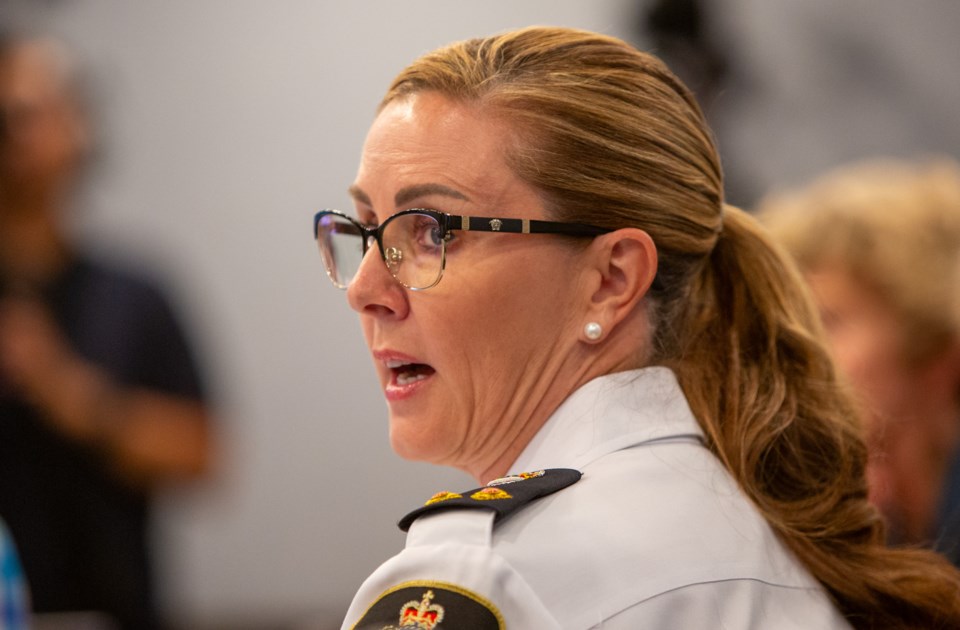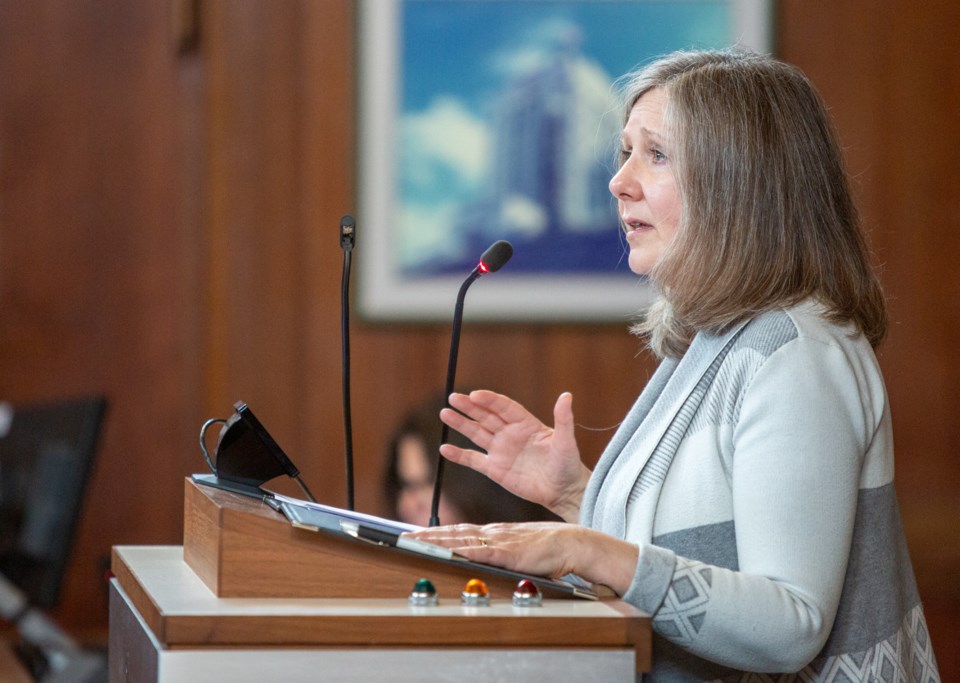New data released this week shows a two-person team of psychiatric nurses embedded in the Vancouver Police Department’s operations command centre continues to divert hundreds of 911 calls that would have otherwise been handled by officers.
In a presentation Tuesday to city council, Bonnie Wilson of Vancouver Coastal Health said 743 of 1,372 calls triaged by nurses between June 2023 and January 2024 were resolved without police having to be involved.
“We're quite excited about the early results,” said Wilson, executive director of community services for the health agency.
“We want to continue to monitor and watch. But we do think that this is providing an appropriate response to the individuals who are receiving these interventions. It's also allowing the police resources to be spared from having to go and respond to these calls.”
Wilson shared how the nurses are able to troubleshoot, problem solve and de-escalate over the phone and connect individuals to a community mental health team to follow up the next day.
The data builds on statistics in October 2023 that showed the rotating team of nurses triaged 579 calls between June and September and directly resolved or diverted 318 to a health care, non-police response.
Both sets of statistics show a continuing trend of more than 50 per cent of calls triaged by nurses being diverted from police — a trend that was not only welcomed by the health agency but by police and city council.

Nine calls per day
Deputy Chief Fiona Wilson said after Tuesday’s meeting that she believed the VPD was the only department in the country that embeds psychiatric nurses in a command centre.
“We've always said that we would love to step back out of this space when we can,” said Wilson, noting the nurses divert an average of nine calls per day. “But there are some calls for service involving someone who's mentally ill that are going to still require police to attend.”
When asked to describe the range of calls police receive, Wilson said they can include a parent concerned about a child in a mental health crisis or a shirtless person running in and out of traffic and banging on car windows — “and anything in between.”
The nurses are being paid via funds unlocked last year by city council to hire up to 58 mental health workers to respond to mental health calls in Vancouver. The two nurses are among 16.5 positions filled in various programs dedicated to mental health intervention.
Vancouver Coastal Health also launched the “moderate crisis de-escalation team,” or MoDe, which is staffed by nurses, social workers and care coordinators. The team offers same-day outreach for people in a mental health or substance abuse crisis.
The number of teams working out of the VPD’s Car 87/88 programs, which pairs police with psychiatric nurses, has also doubled from two to four cars. The health agency also plans to staff an Indigenous crisis response team.
Campaign promise
The investment in the programs is connected to A小蓝视频 Vancouver’s campaign promise to hire 100 police officers and 100 nurses.
When Ken Sim and his party won office, consultation with the health agency determined it would be best to scale up a series of programs that included a variety of mental health workers.
They settled on 58 with a budget of up to $8 million per year.
The health agency spent $617,836 of $2.1 million allocated in 2023 to launch the various programs. The remaining balance of that budget added to $4.6 million unanimously approved Tuesday by council gives Vancouver Coastal Health $6.8 million for the year.
Asked after the meeting whether the programs will scale up to 100 mental health workers in the near future, the health agency’s Wilson said the current budget doesn’t allow for such an increase.
“If more funding was provided, we'd be really thoughtful about where it makes sense to allocate those dollars, and then gradually ramp up based on what we think the highest priority is,” she said.
'An incubator municipality'
A小蓝视频 Coun. Lisa Dominato described the early results of the nurses’ work in the VPD command centre as “incredible,” noting it is a service residents were requesting during the 2022 election campaign.
At the same time, Dominato said she recognized health care is a provincial responsibility.
“Is there a role for the province to play in this? No doubt,” she said.
“We heard today that Vancouver is an incubator municipality, and that potentially this could be scalable and can be replicated in other municipalities. So we will be having conversations with the province about maybe uploading those costs in future.”


